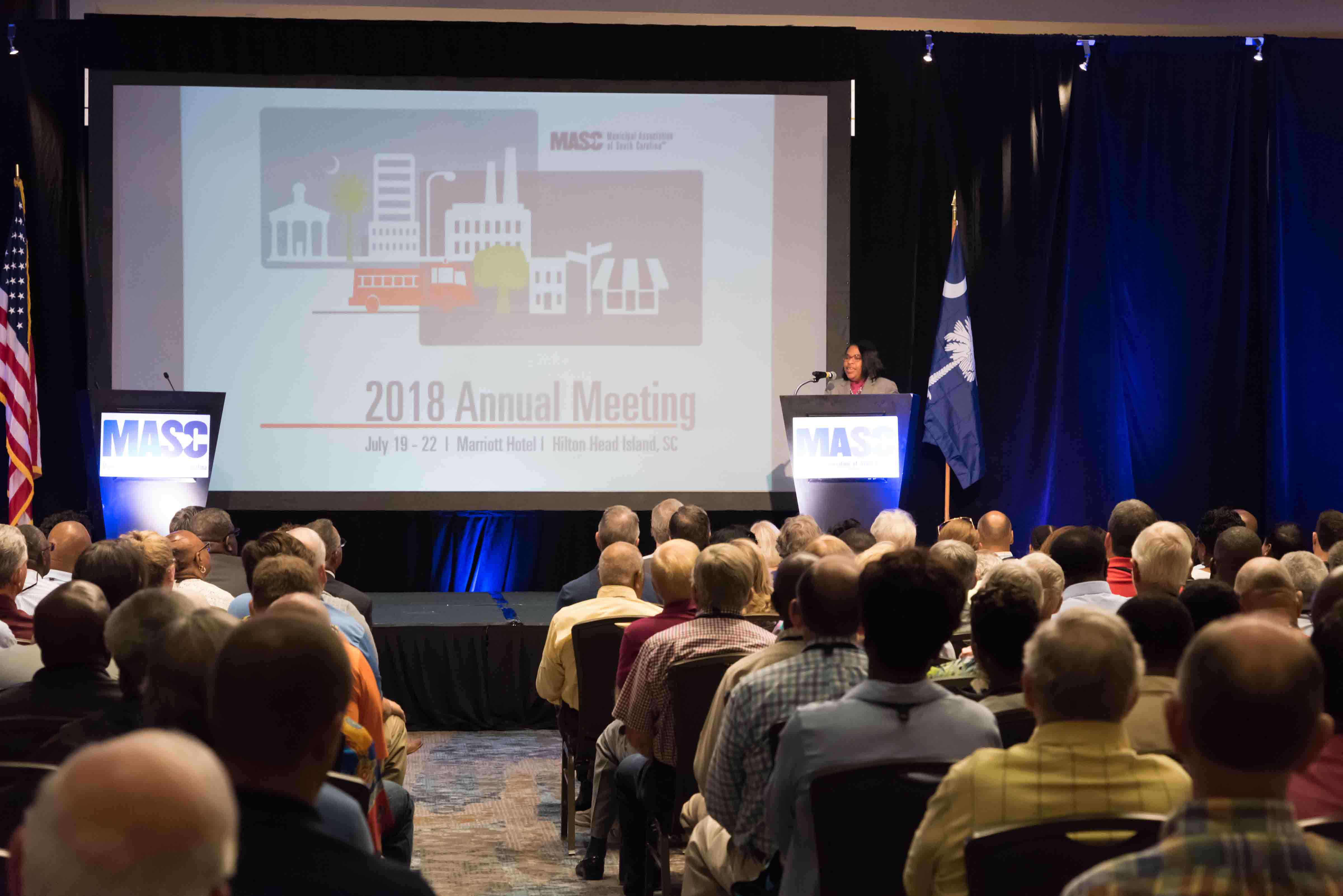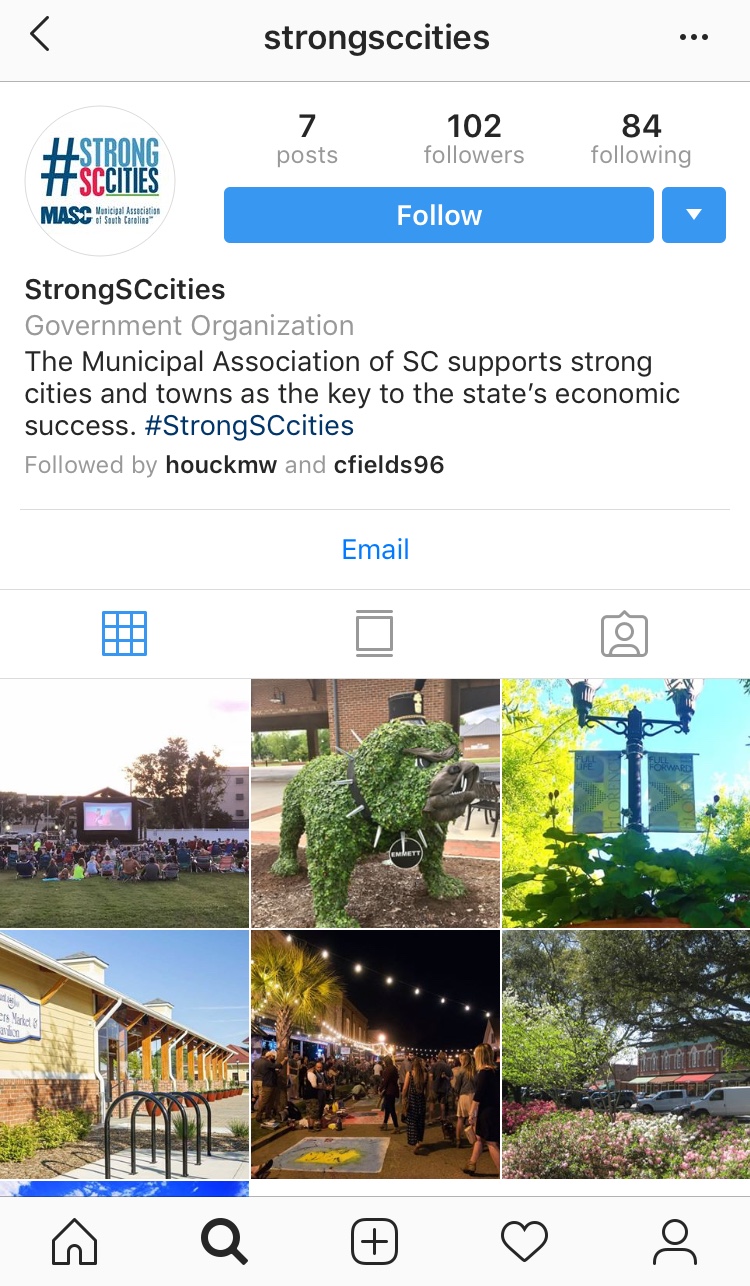Jennifer Pinckney didn’t stand before the hundreds of Annual Meeting attendees in July to recount the horror of a white supremacist’s attack that killed her husband and eight other black worshippers at the Mother Emanuel AME Church three years ago.
She was on a different mission.
She was on a different mission.

Jennifer Pinckney urged attendees of the Municipal Association’s Annual Meeting
to engage with all members of a community, not just those at the top, in order
to understand the struggles of an organization or group.
Pinckney, initially joined on stage by her two young daughters, urged the municipal officials to look to her husband, the Rev. Sen. Clementa Pinckney, as an example of a public servant — someone who actively listened and sought to learn about a problem before launching into a solution.
“You may have had a problem with him, but he didn’t have a problem with you,” said Pinckney, whose husband had served in the South Carolina House and Senate. “Most of all, Clementa loved people.”
What’s more, she said, here in South Carolina, we’re supposed to be a state that takes care of one another.
That calls for approaching problems — from struggling schools to social divisions to poverty — with our eyes open. And time is short, she said. It’s best to do the most good with what time we each have.
The problem is, we may not want to turn our gaze to the homeless man sitting with a sign asking for spare change, just as we may not want to look at blighted, abandoned buildings, Pinckney said. But we must. Visiting lower-income areas and participating in community functions — not just when there is an election but doing so all year round — helps local leaders make decisions that bring the greatest benefit to the public.
“Don’t just go out there and talk to the top notch people,” urged Pinckney, adding that to know what struggles an organization or a community has, you must reach out to the workers. “They’re the ones who know the good, the bad and the ugly.”
“Be with the people,” she said. “You have the opportunity to do good and be good.”
Tweet, post, tag and hashtag your city’s successes
If social media is the “wild, wild west” of communication, it’s time for municipal elected officials to explore the frontier.That’s because social platforms like Twitter and Facebook are where residents, legislators and the news media interact and share news.
It’s time for cities and towns to meet them there.
“We must also be able to articulate why strong cities in general are a critical piece of our state-resident connection and economic success,” said Cayce Mayor Elise Partin, urging attendees to tout their city’s successes — from engaging residents to building communities to attracting employers.
“Cities provide so much value.”
Partin urged Annual Meeting attendees to include the hashtag #StrongSCcities with all their social media posts as a way to categorize them as part of the growing collection of related posts.
What does #StrongSCcities mean?
“It’s a simple message,” said Partin. “Strong cities equal a strong South Carolina.”

Follow the Association’s new Instagram page, StrongSCcities, that showcases South Carolina’s cities and towns. Submit high-resolution JPG images to be posted on the page with a brief description of the photo to Meredith Houck at mhouck@masc.sc.
